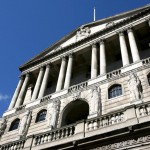
What’s happened since last month’s interest rate prediction?
- Rates remained at 0.5% – last month the Bank of England’s Monetary Policy Committee (MPC), who are the guys who decide the UK base rate, once again voted to keep the base rate at 0.5%, for the 28th month in a row.
- LESS support for a rate rise – since Ben Broadbent replaced Andrew Sentance on the MPC back in May the members of the MPC have continued to vote 7-2 in favour of holding rates.
- Inflation remains high – June's inflation measure (called CPI) fell to 4.2% from 4.5% in May. However, inflation remains stubbornly high and is expected to hit 5% soon. High inflation could derail an economic recovery. To combat inflation interest rates are usually increased.
- The economy has stagnated – economic growth as measured by Gross Domestic Product (GDP) was negative (-0.5%) in the last quarter of 2010. This trend was reversed in the first 3 months of 2011, when GDP grew by 0.5%. Then during the second quarter of 2011 GDP grew by just 0.2%. While at least we technically have avoided another recession the economic recovery is still very fragile. The upshot is that if the economy is in a bad way (high unemployment etc) increasing rates could tip personal finances over the edge and spell disaster. Especially as nearly half of home owners are living in fear of a rate rise. So this could put off the MPC from raising rates.
- Unemployment fell – UK unemployment fell 26,000 in the three months to May this year to 2.45 million, raising hopes that the country may escape a large rise in the jobless total in spite of the upcoming austerity measures. Personally I don’t buy that and such a huge unemployment figure is never a good thing.
- Any signs of green shoots? – Unfortunately GDP figures were disappointing. The Office of National Statistics (ONS) recently announced that consumer spending contracted by 0.6% for the second quarter in a row forcing closures on the high street. The UK economy has experienced the slowest pick-up in consumer spending of any post-recession period since 1830. The government’s deficit reduction policy isn’t working and while there have been recent signs of a pick up in UK services sector (a key driver of the UK economy) which increased output by 0.5% in the second quarter, this was down form the 0.9% in the precious quarter. Or to sum it all up, the UK economy is in serious trouble. Raising rates would hammer consumers further and could derail any sniff of an economic recovery which would be bad news.
- Mervyn King is still not panicking and doesn't want to raise rates – Mervyn King is the guy who heads up the group of people who sets the bank base rate. Speaking at the European Parliament in Brussels in May, Mervyn King warned that a rise in long-term interest rates would have “severe” consequences. So it doesn’t sound like he’ll be changing his ‘steady as she goes’ tune any time soon. In fact he recently indicated that there would be no rise in interest rates until there was clearer evidence that the economy was growing and that unemployment and the interest rates actually paid by consumers were falling. None of these will be happening any time soon.
- UK Economic growth forecasts continue to be cut – by not only the Organisation for Economic Co-operation and Development (OECD) but also by the Government and the International Monetary Fund. Suggesting that the recovery is more fragile than first thought.
So when will interest rates rise?
The market’s views on when the first rate rise has continued to be pushed back, now centring around mid 2012. But this could change at the drop of a hat.
The Money to the Masses Interest Rate Clock time remains unchanged
As regular readers will know our interest rate clock sums up a lot of economic data, analysis and opinion, such as the above, and if a jump in interest rates is looking increasingly likely then the clock time will be moved closer to midnight. If it looks less likely then it will move away from midnight (with 23.45 being an expectation of an interest rate drop). So you can ignore all the waffle and just concentrate on the clock time.
But the recent lacklustre GDP figure coupled with weak consumer spending (as I previously predicted) mean that taking the economy off life support machine too soon could be disastrous.
As I’ve said previously, while inflation is still the key problem facing the MPC, and sky high petrol prices are exacerbating the issue, interest rate rises are not a direct consequence. Rising petrol prices are squeezing consumers wallets at a time when unemployment is still high. Consequently, consumers have less money in their wallets to spend on other things. If rates go up consumers will be hammered further by spiralling mortgage costs - again putting downward pressure on consumer spending.
For me, I think there are still a number of uncertainties in the economy for rates to rise just yet and realistically we might not see a rate rise until the final quarter of the year (over even into 2012). Bear in mind that the MPC tend to raise rates after a quarterly inflation report (the next two reports being scheduled for August and November). So keep an eye on these (November in particular).
So to sum up the clock time remains at 23:53 for now.
The historic clock time adjustments are listed below to give you an idea of how my expectation of an interest rate rise has changed over time:
- May 2010 – 23:55
- July 2010 – 23.54
- September 2010 – 23.53
- January 2011 – 23.54
- Feb 2011 – 23.56
- May 2011 – 23.55
- July 2011 - 23:53
Should you rush to fix your mortgage now?
Luckily I’ve answered this question in my article Should you fix your mortgage now?




